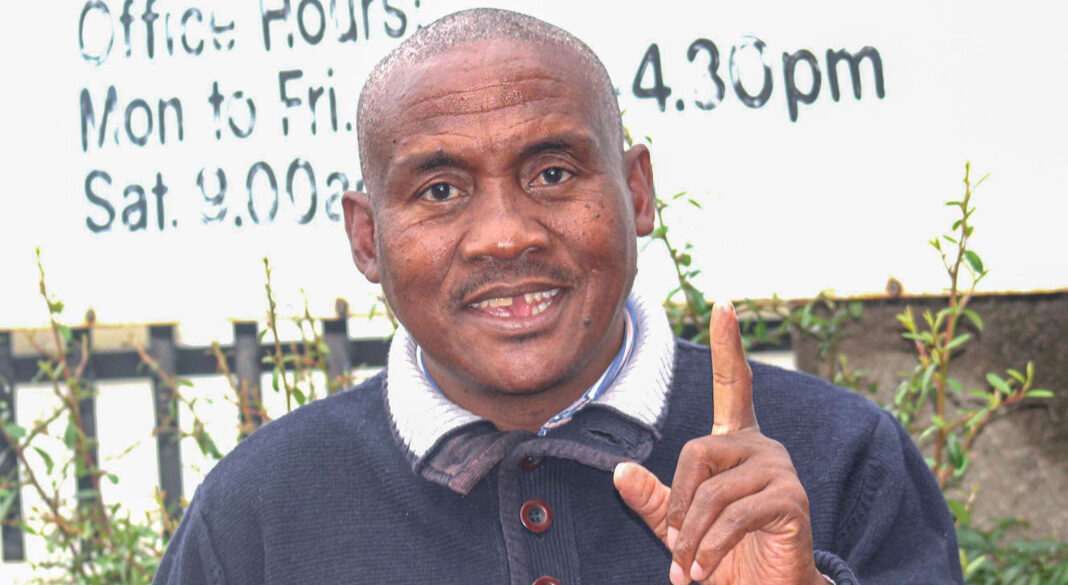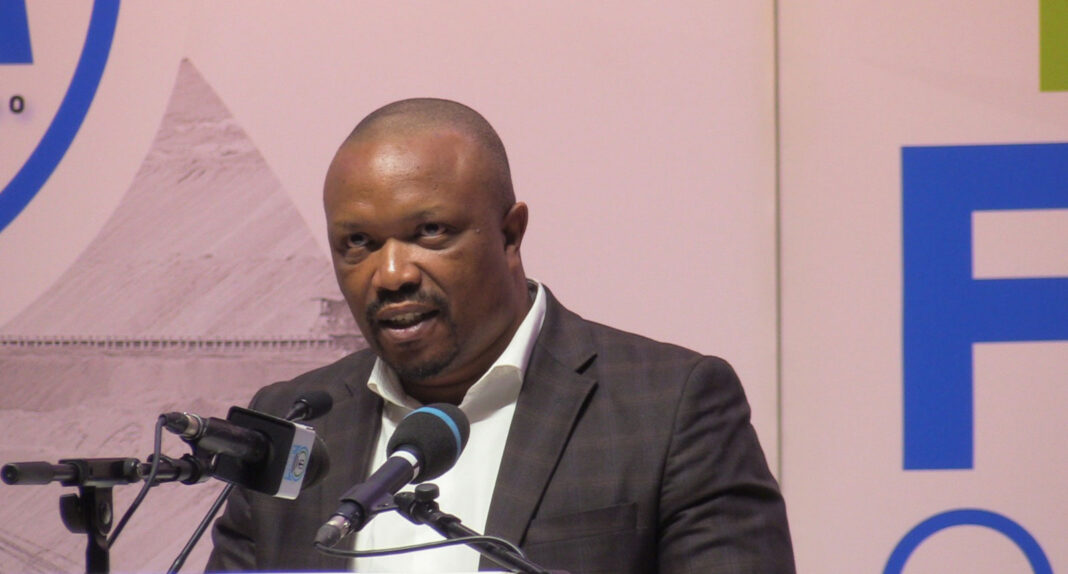Lenka Thamae is a well-known activist who has played a major role in advocating for water resources to be provided freely to communities in Lesotho. Thamae has also launched a campaign aimed at ensuring that communities affected by the Lesotho Highlands Development Authority’s (LHDA) implementation of the Lesotho Highlands Water Project (LHWP) are given substantial compensation. The spirited community leader, who has led non-governmental organisation Survivors of Lesotho Dams (SOLD), is adamant that the implementation of the giant project should enhance the livelihood of communities primarily in rural settings where the bulk of the project is being carried out.
theReporter recently caught up with Thamae to get an insight into his role, vision, and how he is working with communities affected by the water project.
Please briefly tell us about your background.
I am a university graduate, policy analyst, policy advocate, and stakeholders’ public engagement and public participation specialist. I am also schooled in international relations and public administration. I was coordinator of SOLD for many years and also worked at the Transformation Resource Centre.
You are an outspoken activist who spearheaded an organisation (SOLD) that stood with the people in the implementation of the multi-billion maloti water project. How did it all start?
My activism in water resources began while I was at the Transformation Resource Centre where I was an advocacy and community trainer. Since then issues to do with water resources have been close to my heart. I have been doing advocacy for communities affected by the Lesotho Highlands Water Project. SOLD was formed in 2004, immediately after the World Summit for Sustainable Development so that communities’ voices and experiences are not filtered through non-governmental organisations only, but that a people’s organisation should speak for the people.
What community activities are you currently engaged in?
Currently my involvement with communities affected by the Lesotho Highlands Water Project is that of advisor and specialist. I write extensively on how communities have been affected by the project, highlighting effects on their livelihoods. There have been huge complaints from communities that their lives are headed for the worse since compensation from the project comes late and is not enough. They have bitterly expressed displeasure at the quantity of food aid compensation they’re given. They also complain that the money offered is also not meeting their standards of living. Others say that their lives were better off before the project came into being.
Recently, the world marked International Water Day. What is its significance to Lesotho?
Yes, the World, including Lesotho, recently celebrated World Water Day. The theme for this year is “Celebrating water and peace”. As communities, we will not celebrate or rest until water and sanitation become our rights. This is what were need to fight for tirelessly but in a peaceful manner, to remind authorities to respect us and afford us these rights.
Lesotho has abundant water resources but many people still lack potable water. What is missing?
What is missing is commitment from the country’s leadership, the so-called political will. There is absolutely no reason for not declaring water and sanitation as constitutional rights. Our politicians and other stakeholders should show visible willingness to declare such as rights and that should be reflected in our laws. It should be mandatory for the state to protect and promote such rights.
Recently the LHDA launched what they called a 10-year strategic plan. What are your thoughts about it?
We are primary stakeholders as organisations monitoring the Lesotho Highlands Water Project. The LHDA knows that we exist and that we have a meaningful role to play as watchdogs to ensure the lives of people affected by this multi-billion project are improved. Our people should reap the benefits of the country’s natural resources. It is unfortunate that those in authority did not invite us to give our input into the so-called strategic plan. This was deliberate, in our view. I believe that stakeholders are part of strategic planning. I am therefore, surprised that the LHDA chose to do it alone. That strategic plan will have problems as those in authority dictate terms.
Some people believe that Lesotho’s water resources are conquered by the Republic of South Africa and that the country does not have control over them. What is your comment about this?
This is a political question which must be responded to as such. Lesotho is a small state, while South Africa is a big state with resources to impose its will on us. Just look at what happened in 1998. Lesotho was attacked by South Africa under the pretext that there was a potential threat to the dam (Katse Dam). As a result, many of our soldiers lost their lives there. The treaty establishing the project is arguably favouring South Africa. It is pinned on water delivery to that country while effectively leaving less benefits for Basotho as a nation.








